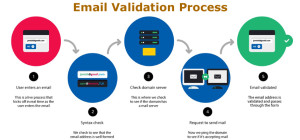If you are a student, researcher, writer, or other creator, then you have some familiarity with the idea of plagiarism and copyright. Anyone who has read a book or magazine article, read through a website, or watched a movie has interacted with a copyrighted work. Since academic research necessarily involves referencing and often quoting or summarizing the work of others, it is common to have questions about what copyright is, and whether it is plagiarism to use someone else’s copyrighted work. In this article, we will learn about copyright and copyright infringement, the relationship between plagiarism and copyright infringement, and how to avoid committing plagiarism and copyright infringement in your academic career.
Copyright: What is it Anyway?
Copyright is a type of intellectual property. Intellectual property rights are the rights that an intellectual property owner has over the relevant artistic work, trademark, or patent invention. Ownership of patent rights provides you with control over things like who can manufacture the patented product. Copyright ownership is similar. If you are a copyright holder, then you can generally control who uses your work and how.
Unlike trademarks and patents, which have to be registered with a national or international database to be recognized, copyright is given automatically once a work is created in some kind of tangible form. This means you cannot have a copyright for an idea for a novel in your head, but once you write that novel down, you own the copyright. It is usually advised to register your copyright with your local government registration system, because it makes it easier to protect your rights if they are infringed. While copyright laws vary in each country, the Berne Convention sets a minimum international standard, and most countries are signatories. Examples of works that can be copyrighted include books, website content, musical works, choreography, movies, and so on.
What is Copyright Infringement?
Copyright infringement is when a non-copyright holder unfairly uses someone else’s copyrighted work without permission. As we mentioned above, the rights of copyright holders do differ from country to country, but in general these rights include:
- The right to reproduce works. This gives you the right to make copies and share your work with others, and control who else can do the same.
● The right to create derivative works. These include spin-offs, translations, or adaptations.
● The right of distribution. This is the right to rent, sell, lease, or lend copies of your work.
● The right of public performance. This means the right to show, broadcast, or otherwise share a work.
If someone who has not received permission from the copyright holder does any of the actions above, they are committing copyright infringement. It is important to note that there are exceptions where copyright does not apply. These include parody or satire, certain educational situations, reporting news, and judicial proceedings. For example, it is often considered fair use to quote someone’s book without their permission if you are writing a review, and if you credit the source. On the other hand, making photocopies of someone’s academic journal article and handing it out to a classroom likely constitutes copyright infringement. Copyright infringement is a statutory crime, and committing it can result in punishment under the law.
What is Plagiarism?
Plagiarism, similar to copyright, involves the use of someone else’s work without their permission. When you commit plagiarism, you use someone else’s work without giving credit, and pretend that it is your own. You can also commit self-plagiarism by pretending that old work you have already submitted or published is new and original. When you commit plagiarism, you are committing an offense against the author by taking credit for their hard work. You are also lying and stealing. You can plagiarize work that has not been copyrighted, and it is still a problem.
Is Plagiarism Copyright Infringement?
Plagiarism and copyright infringement differ in some important ways. First, unlike copyright infringement, plagiarism is an ethical issue and not a legal one. While committing plagiarism can get you fired from your job, expelled from university, stripped of your university degree, and other such serious consequences, it is not itself a crime. Plagiarism only becomes a statutory crime when it is also copyright infringement.
So is plagiarism copyright infringement? The answer is sometimes. Copyright infringement only applies to works that are protected by copyright, whereas plagiarism applies to all types of work, copyright-protected or not. If you plagiarize a copyrighted work, then you are committing plagiarism and copyright infringement. If a work isn’t copyrighted, you can still plagiarize it by stealing the work and pretending it is your own, but this would not be copyright infringement. Plagiarism and copyright infringement are often committed at the same time, which is one reason people easily confuse the two.
One easy way to distinguish is to think about plagiarism as an issue of giving intellectual credit where it is due, while copyright infringement is focused on making sure the copyright holder is getting all of the revenue that is generated by their work.
How to Avoid Plagiarism and Copyright Infringement
You as a student or researcher can avoid both plagiarism and copyright infringement by taking a few simple precautions in your writing. First, you should learn the rules of citation and make sure that you are always citing your sources properly. Second, you should make sure that you know how to paraphrase properly so that you avoid committing unintentional plagiarism and copyright infringement. Third, you should always use aplagiarism checkerlike this tool from Enago to make sure that your work is free of any plagiarism and copyright infringement. By comparing your work with millions of other copyrighted works, Enago’splagiarism checkergives you the peace of mind you need to know that you haven’t accidentally committed plagiarism and copyright infringement. Finally, if you are confused about plagiarism and copyright, ask your professor or publisher whether your writing constitutes plagiarism. They can likely help you overcome any accidental plagiarism and copyright infringement before you submit your writing.







